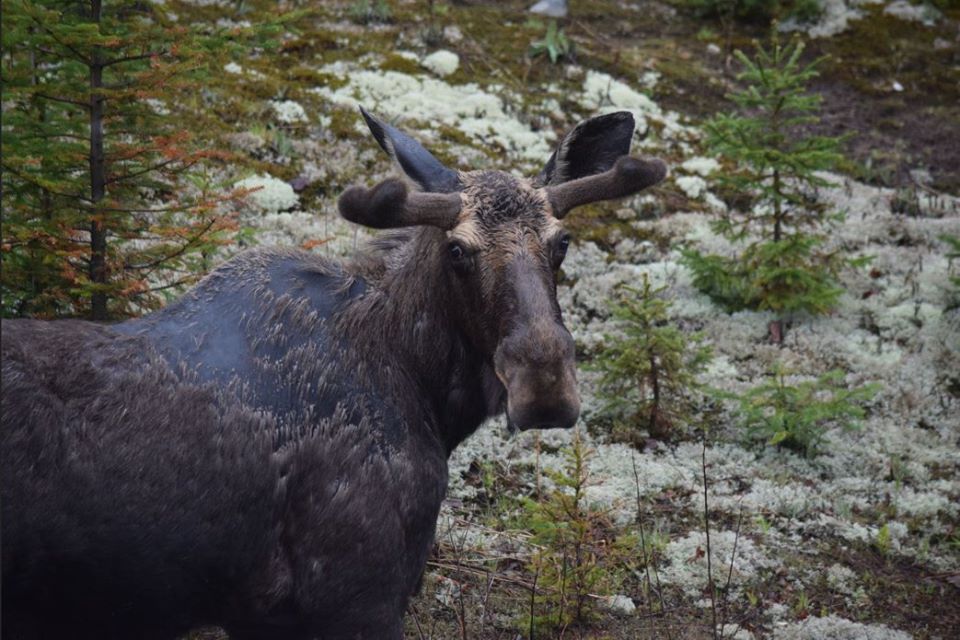If you see a moose suffering from hair loss, it’s not the start of a bad joke, it’s a very serious condition that can kill the hulking animals.
The BC Wildlife Health Program is asking for help in assessing the effects of winter ticks on the provincial moose population.
It’s part of the annual moose winter tick surveillance program, which relies on observations from wildlife professionals and the public to monitor the number of moose with hair loss and assess the amount of hair loss on each animal.
These ticks feed on the blood of moose from January to April, spend the entire winter on one host and there can be tens of thousands of ticks on one moose.
The irritation they bring causes moose to scratch and groom themselves constantly, resulting in hair loss, less time looking for food and resting, leading to weight loss.
Anyone interested in contributing to this program can fill out a survey online.






